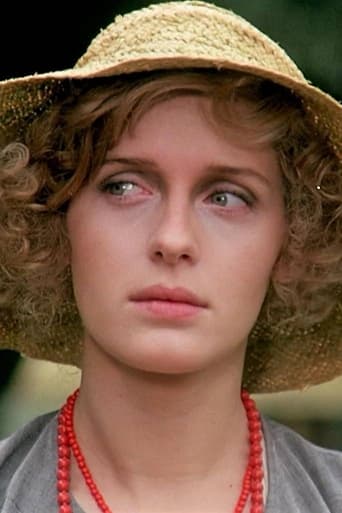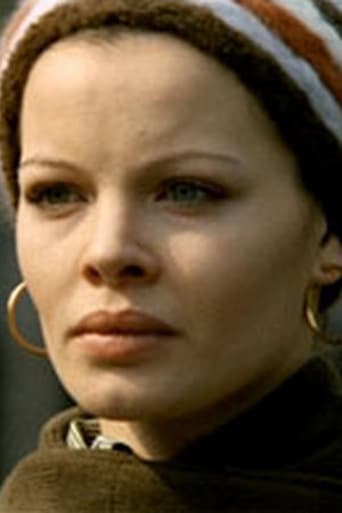Mabel Munoz
Just intense enough to provide a much-needed diversion, just lightweight enough to make you forget about it soon after it’s over. It’s not exactly “good,” per se, but it does what it sets out to do in terms of putting us on edge, which makes it … successful?
lor_
Having collected Morricone LPs religiously throughout the '70s, I've latterly been trying my best to see some of the corresponding elusive movies (many of which were never released in the U.S. in any form). SEPOLTA VIVA has to rank as one of the disappointments.Starring the wonderful Agostina Belli, and boasting a lush romantic score from Ennio (directed by Bruno Nicolai), the mystery of its lack of export has been solved: this film does not fit neatly into any marketable category. It is a period romance set in France which has some melodramatic elements, but is neither a thriller nor an adventure. It more closely resembles a pageant, the sort of movie where the audience goes home "humming the sets & costumes" as the cliché goes.Title is in fact a misnomer, as this is not an Edgar Allan Poe tale of a "woman buried alive" but rather a weakly plotted drama closer to Alexandre Dumas. Unfortunately, the elaborate and intricate plotting of Dumas, as evidenced in still-entertaining and repeatedly filmed classic tales like THE MAN IN THE IRON MASK or THE COUNT OF MONTE CRISTO, is lacking. SEPOLTA VIVA plods along without the pleasurable twists an audience is accustomed to.Belli, beautifully coiffed and appareled, is French duchess Christine who is victim of some really evil scheming by the villains Ferdinand (Maurizio Bonuglia, replete with mustache, but not of the twirling caliber) and older Morel (guest star Jose Quaglio). Ferdinand slips a form of poison in her drink one night, and when her lifeless-seeming body is found the next morning it's funeral procession time.Unlike the title's Poe-implication, the villains whisk away her body before burial, substituting sand bags in the coffin. Belli is placed in a tiny cell adjoining a water mill, where she wakes up to remain in captivity (and unknown to anyone but the baddies) for the rest of the picture.The good guys including her boyfriend and her brother (played by Francois Perrin and Fred Robsahm) eventually help out, but it is a little boy who discovers her plight and helps her, even trying to saw through the bars of her cell. Belli gives birth to a bambino (unaided -she's a plucky heroine) in her cell, the infant saved by being passed through the wide window bars to her young pal.This just isn't very interesting overall, merely local color evoking a couple of centuries back. The inimitable Laura Betti, with strange grey wig, guest stars as a crazy woman, but even she fails to enliven a sleepy, frankly dull approach taken by director Aldo Lado. His career makes no sense at all, starting with two successful horror movies (SHORT NIGHT OF THE BUTTERFLIES and WHO SAW HER DIE?), and then veering to an impersonal succession of erotica and minor league international thrillers, none of which has lived up to the initial promise.Without spoiling them, final reels finally introduce some action, including a broadsword fight and Poe-like "cell filling up with water" Perils of Pauline danger for Belli. Wet or dry, she makes for a sympathetic heroine, supported by Morricone and other fine technical credits including reliable Mario Vulpiani lensing, but to no avail thanks to weak script & direction.






